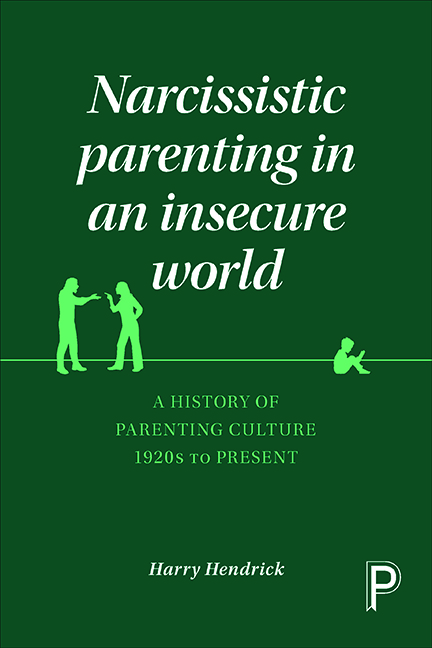Book contents
- Frontmatter
- Dedication
- Contents
- About the author
- Acknowledgements
- Introduction
- Part One The origins of social democracy’s family ideal: 1920s–1940s
- Part Two Characteristics of the ‘Golden Age’: 1940s–early 1970s
- Part Three Influences and examples from the USA
- Part Four Parental narcissism in neoliberal times: 1970s to the present
- Part Five Therapeutic reflections
- Index
Part Two - Characteristics of the ‘Golden Age’: 1940s–early 1970s
Published online by Cambridge University Press: 05 April 2022
- Frontmatter
- Dedication
- Contents
- About the author
- Acknowledgements
- Introduction
- Part One The origins of social democracy’s family ideal: 1920s–1940s
- Part Two Characteristics of the ‘Golden Age’: 1940s–early 1970s
- Part Three Influences and examples from the USA
- Part Four Parental narcissism in neoliberal times: 1970s to the present
- Part Five Therapeutic reflections
- Index
Summary
Introduction
We have seen that one of the principal objectives of post-war reconstruction was to deal with ‘the grave and urgent problem of the renewal of our Family Life’. At the heart of the rebuilding process, aside from fears of a declining population (which turned out to be unfounded), was the desire to improve on what was in some respects the troubled history of the family since the end of the First World War: the trauma of the loss of a generation in the trenches, followed by the physical and mental ravishes of the slump and the Great Depression and, as the evacuation revelations proved, the enduring presence of a substantial minority of families mired in poverty, bad housing and ill health. The spectre of the problem family tempered any complacency that families in general could be left to develop desired standards of behaviour without expert welfare guidance. The war brought death and destruction to millions of families, added to which were the psychological and emotional problems of evacuated children and of returning servicemen, often after years of absence. Moreover, as became apparent during planning for reconstruction, in important respects post-war society was certain to be much more psychologically demanding in terms of practising democratic welfare collectivism. And since few people doubted the institutional value of the family for the stability of social and political life, the growing awareness from the 1920s onwards of psychoanalytic pressures on personal subjectivity made the provision of appropriate post-war social, medical and welfare services a national priority. For those involved in providing these services, the parent–child relationship was seen as being fundamental to the nurture of emotionally mature individuals. In this regard, early efforts to rebuild the family embraced many of the inter-war trends that pointed the way to advances in the democratisation of its relationships, certainly among the liberal middle class, accompanied by a new emphasis on the value of ‘domesticity’ and ‘home’ (‘a name which is more dear… to people the world over than almost any other in their language’), and a similarly new appreciation of the family as a loving and secure environment.
- Type
- Chapter
- Information
- Narcissistic Parenting in an Insecure WorldA History of Parenting Culture 1920s to Present, pp. 85 - 88Publisher: Bristol University PressPrint publication year: 2016



